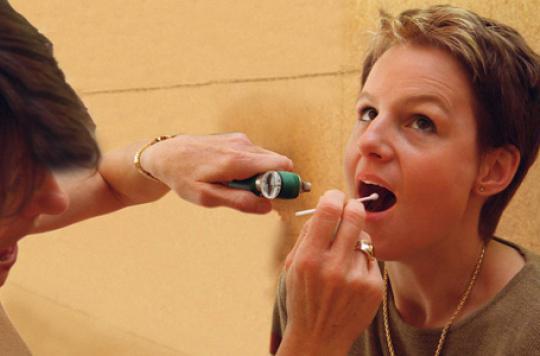To prevent bacteria from being resistant to antibiotics, the Ministry of Health wants to reduce their consumption by a quarter in five years.

Another effort with antibiotics! The Ministry of Health has decided to once again mobilize the population and the health professions on the proper use of these drugs. Thanks to the third national plan, the health authorities hope to reduce their consumption by 25% in five years. What are the issues ? The consumption of antibiotics has fallen by 16% in France in ten years. But the country is still one of the biggest consumers in Europe behind Greece. The downward trend over ten years was especially noticeable during the first five years. A “slight upturn” in consumption has even appeared since 2005, especially in 2009, the year of the H1N1 flu, although the flu cannot be treated with antibiotics. Consumption increases with age and differs by gender and region. Women – at least until the age of 64 – take more antibiotics than men and the level of consumption is higher in northern France. And there is still a lot of misuse of these products, recalls Professor Benoît Schlemmer, the president of the National Monitoring Committee of the Antibiotics Plan. , “70% of bronchitis in adults, he explains, is treated with antibiotic therapy in France against 40% in Germany”.
Prof. Benoît Schlemmer, responsible for monitoring Antibiotic Plans: “in many cases, common infections do not require an antibiotic”.
Because of this overconsumption, the antibiotic resistance of bacteria progresses. According to a European study presented at the International Congress of Infectious Diseases, 4% of children and 7% of adults in city care have resistance to antibiotics. In the hospital, everyone has methicillin-resistant Staphylococcus aureus in mind, but new resistant bacteria are emerging, notes Dr Bruno Coignard of the Institute for Public Health Surveillance (IVS). “Currently, infections due to enterobacteriaceae producing carbapenemas are on the increase. They are resistant and can lead to treatment failures. These are bacteria that colonize the digestive flora of people and can be transmitted. “
Dr Bruno Coignard, Department of infectious diseases at the IVS: “in case of infection, it is recommended to isolate the person”
Another cause for concern: the 15% reduction in the number of antibiotic molecules available in France. In ten years, twenty-five products have ceased to be marketed and only ten new substances have appeared. What some scientists explain by the low profitability of antibiotics. ” This situation is particularly worrying because the gradual depletion of the supply restricts the range of remedies., notes Prof. Dominique Maraninchi, director of the National Medicines Agency. In practice, doctors are already faced with infections that can threaten the life of patients due to a lack of effective antibiotics. According to a European report, twenty-five thousand patients died in 2007 from infections linked to multidrug-resistant bacteria, which could not be treated.
Faced with these threats, the plan of the Ministry of Health includes several measures. He asks doctors to reduce their prescriptions. In the city, health insurance has set via the 2011 convention signed with liberal doctors a target of -10% of antibiotic prescriptions for adults. In addition, the use of diagnostic orientation tests is recommended, for example to find out whether angina is of viral origin or not. To limit misuse, the National Medicines Agency is also preparing a list of prescription antibiotics for 2012: broad-spectrum antibiotics should no longer be used in town medicine.
” Antibiotics, if used wrongly, they will become less strong “. Doctors aren’t the only ones carrying the strain. The general population is sensitized by communication campaigns planned by the health insurance. Last point of this third national plan on antibiotics, the ministry is planning a revival of basic and clinical research.













